Ottoman Boston: Discovering Little Syria
hosted by Meryum Kazmi and Harry Bastermajian
| a collaboration with Harvard Islamica --- In this episode, we leave Harvard and Cambridge to explore the little-known history of immigration from the former Ottoman Empire to Boston in the late 19th and early 20th centuries. While completing their PhDs at Boston University and Harvard, Dr. Lydia Harrington and Dr. Chloe Bordewich began to research the history of the neighborhood in today's Chinatown and South End once known as Little Syria. Through the study of property maps, newspapers, oral history interviews, and immigration records, Chloe and Lydia have uncovered the story of this diasporic community from today’s Syria and Lebanon and added both to our understanding of Ottoman immigration to the United States and the history of Boston. The resulting public history project now includes walking tours of Little Syria, an article in both English and Arabic, an exhibit, and a digital humanities project.
 | Click for RSS Feed | 
|

|
In this episode, we leave Harvard and Cambridge to explore the little-known history of immigration from the former Ottoman Empire to Boston in the late 19th and early 20th centuries. While completing their PhDs at Boston University and Harvard, Dr. Lydia Harrington and Dr. Chloe Bordewich began to research the history of the neighborhood in today's Chinatown and South End once known as Little Syria. Through the study of property maps, newspapers, oral history interviews, and immigration records, Chloe and Lydia have uncovered the story of this diasporic community from today’s Syria and Lebanon and added both to our understanding of Ottoman immigration to the United States and the history of Boston. The resulting public history project now includes walking tours of Little Syria, an article in both English and Arabic, an exhibit, and a digital humanities project.
Contributor Bios
 |
Chloe Bordewich is a postdoctoral fellow in public history at Boston University. Her research focuses on empire, technology, and the control of information in 19th- and 20th-century Egypt. |
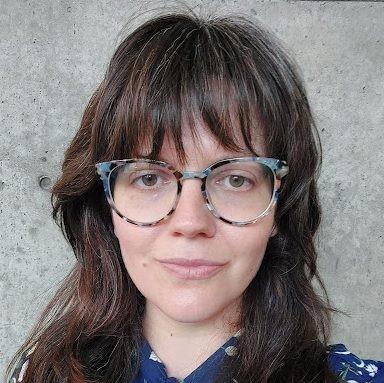 |
Lydia Harrington is Postdoctoral Research Fellow at the Aga Khan Program for Islamic Architecture at MIT. She earned her PhD in the History of Art and Architecture at Boston University. |
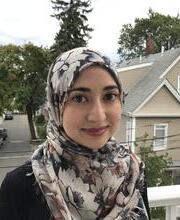 |
Meryum Kazmi is the Program Coordinator for the Alwaleed bin Talal Islamic Studies Program at Harvard University. Meryum has worked in various education nonprofits and taught Arabic grammar at the Fawakih Institute in Herndon, VA and the Qasid Arabic Institute in Amman, Jordan. She earned her BA in History at Georgetown University and AM in Near Eastern Languages and Civilizations at Harvard University.
|
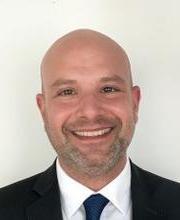 |
Harry Bastermajian is the Executive Director of the Prince Alwaleed Bin Talal Islamic Studies Program at Harvard University. Dr. Bastermajian earned his PhD in Islamic History and Civilization from the University of Chicago, as well as an AM in Islamic History and an AM in Middle Eastern Studies. He took his undergraduate degree, cum laude, in Economics and International Relations from Lake Forest College. His dissertation examined Armenian identity formation in nineteenth century Istanbul. His research interests include the role of the press in late modern Islamic empires, religious and ethnic minorities in the Muslim world, and inter-communal relations in the late Ottoman Empire. Prior to joining the Prince Alwaleed Islamic Studies Program, Dr. Bastermajian coordinated the Andrew W. Mellon Islamic Studies Initiative at the University of Chicago and was the graduate programs administrator at the Center for Middle Eastern Studies at Harvard.
|
Credits
Episode No. 547
Release date: 30 May 2023 (original 3 April 2023)
Sound production by Meryum Kazmi
Audio elements (all used with permission): Chinatown field recording, "Back to Sorrento" by Anton Abdelahad, "Wings - III Chorinho" by Aitua, "Wings - I Adante" by Aitua, "Camille Saint Saens - Carnaval des animaux - XII Fossiles" by Aitua, "Ifrah Ya Albi" by Anton Abdelahad, "Walk to the Ray" by Lobo Loco, "Misirlou" by Anton Abdelahad
Photos by Meryum Kazmi
Transcript available here
Further Listening
 |
Bruce Burnside & Sam Dolbee | 320
6/24/17
|
Ottoman New York |
 |
Rayya Haddad | 508
7/29/21
|
Layers of History in Downtown Beirut |
 |
Peter McMurray | 321
6/27/17
|
The Sounds of Islamic Berlin |
 |
Stacy Fahrenthold | 404
3/2/19
|
WWI in the Syrian and Lebanese Diaspora |
 |
Richard Breaux | 494
2/23/21
|
Musical Archives of the Midwest Mahjar |
Images
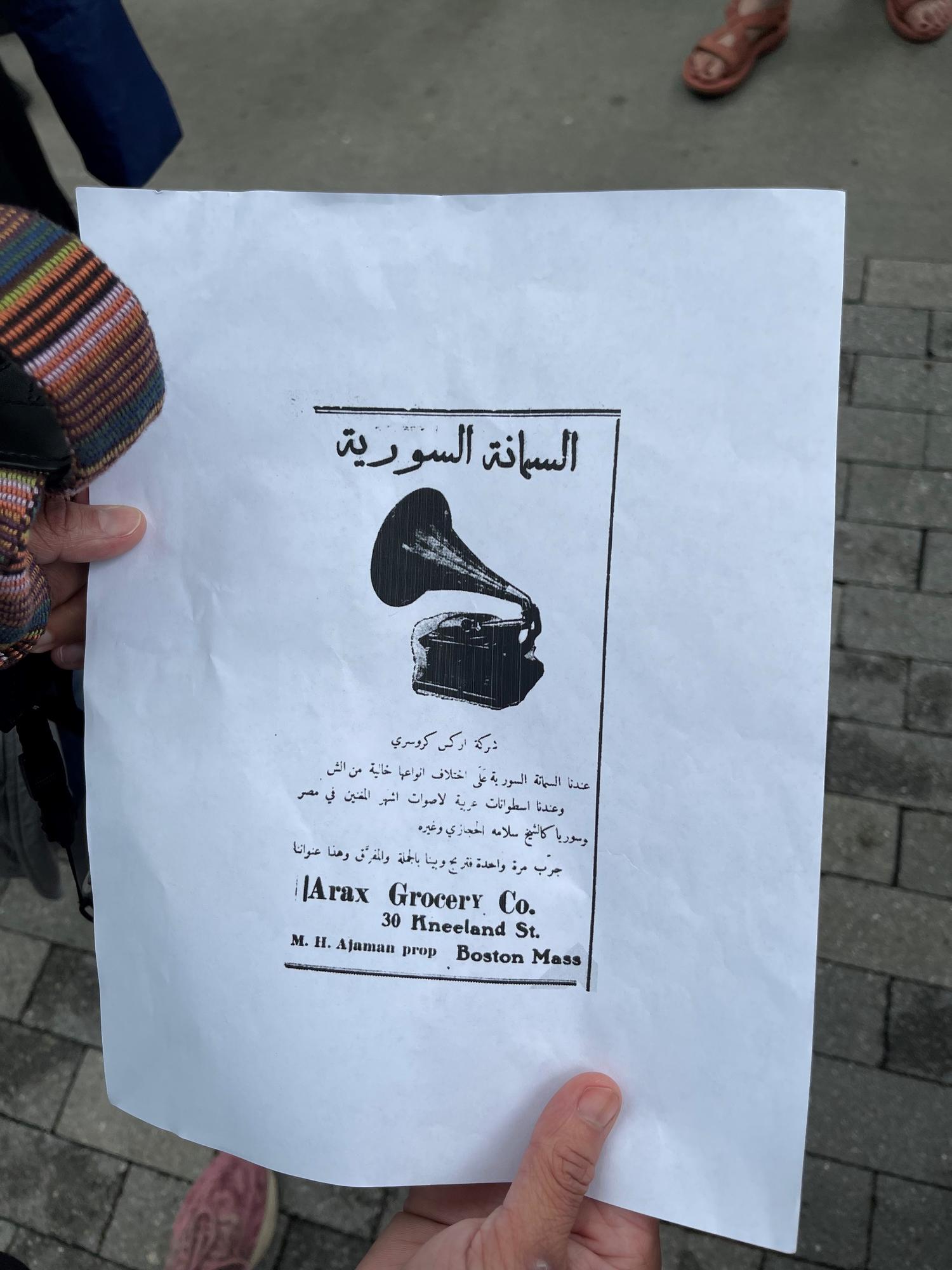
Newspaper advertisement for a Syrian grocery store, Arax Grocery Co., al-Samana al-Suriyya
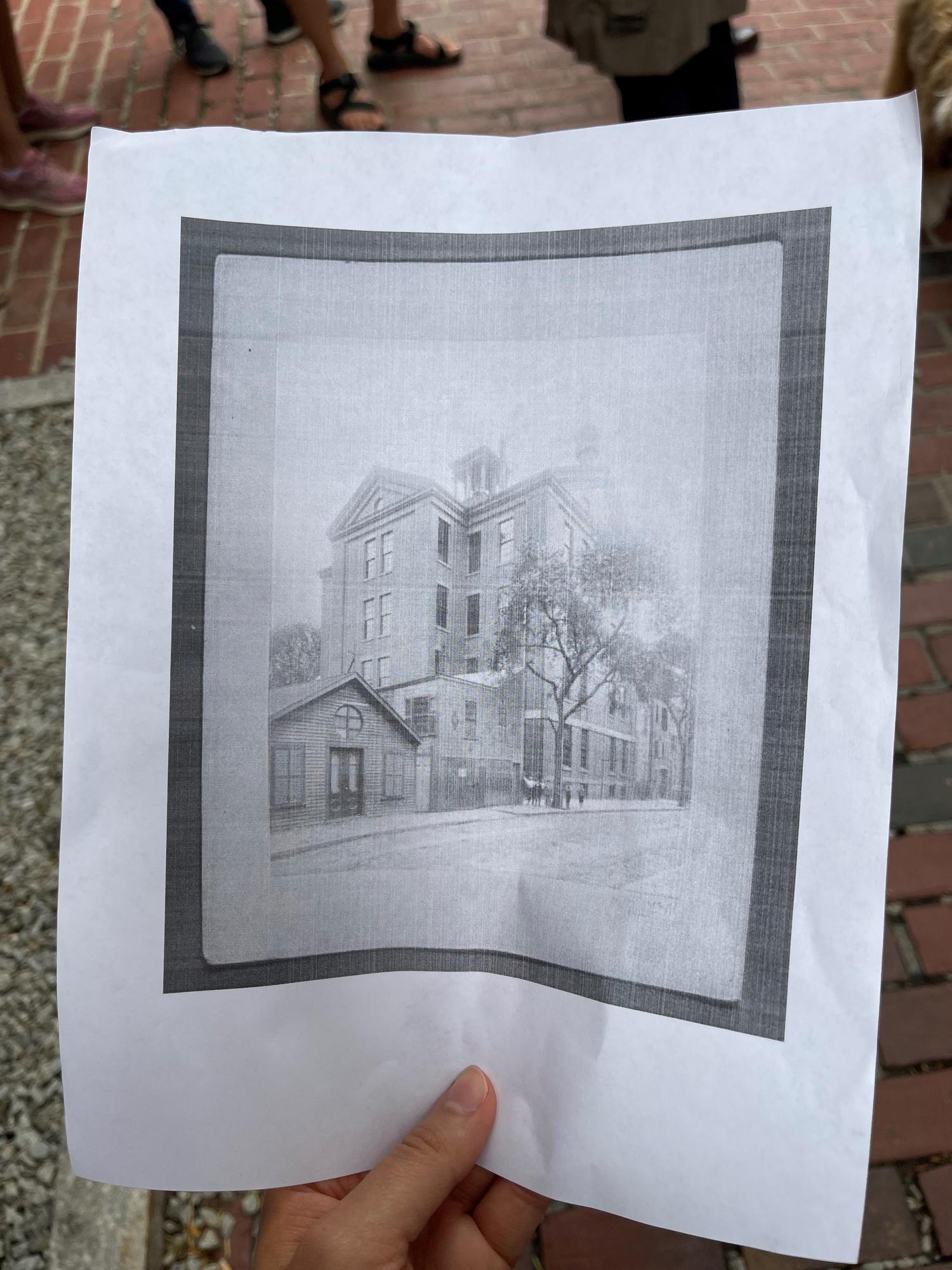
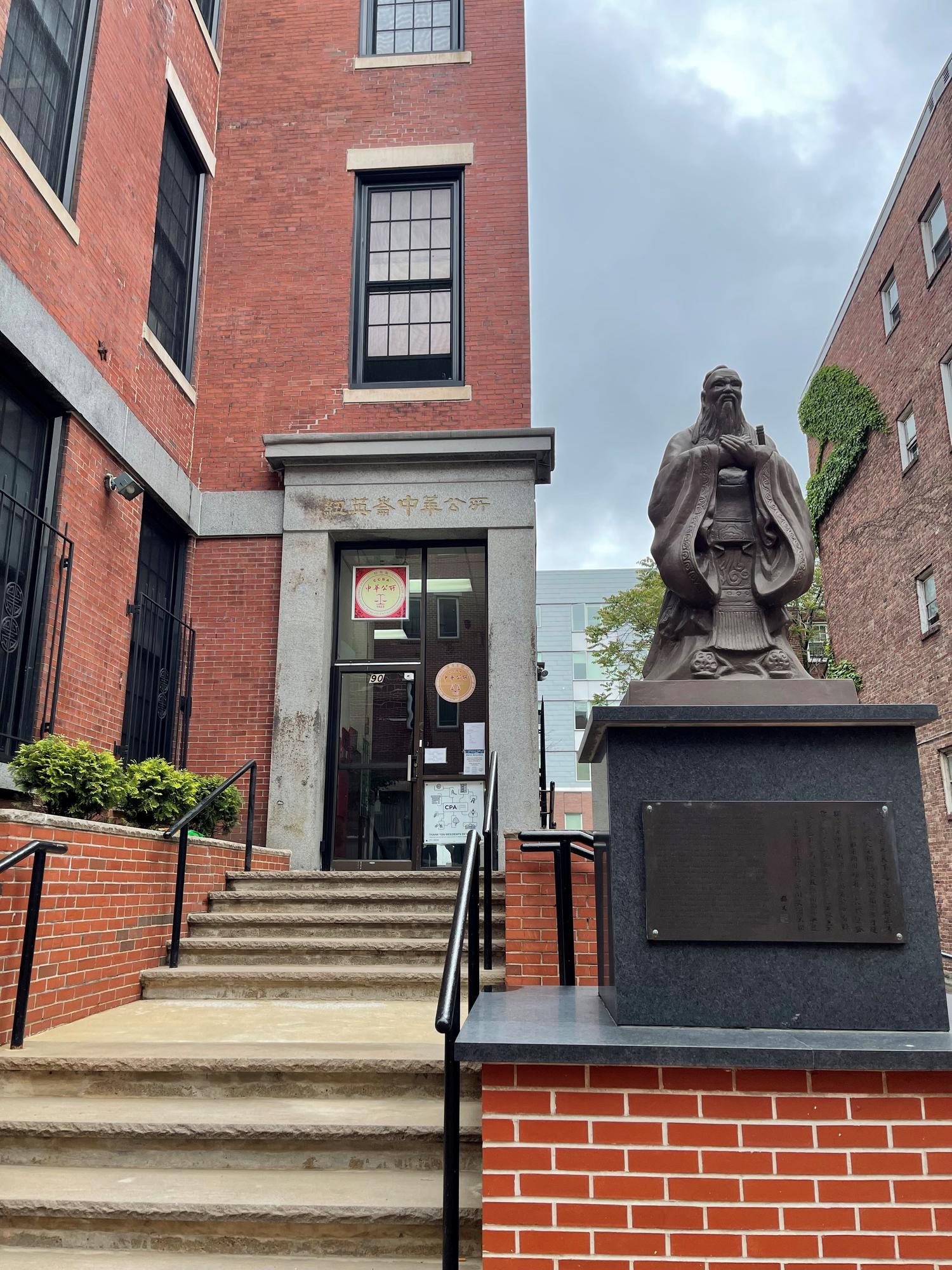
Chinese Consolidated Benevolent Association, formerly the Quincy Grammar School. Photo by Meryum Kazmi
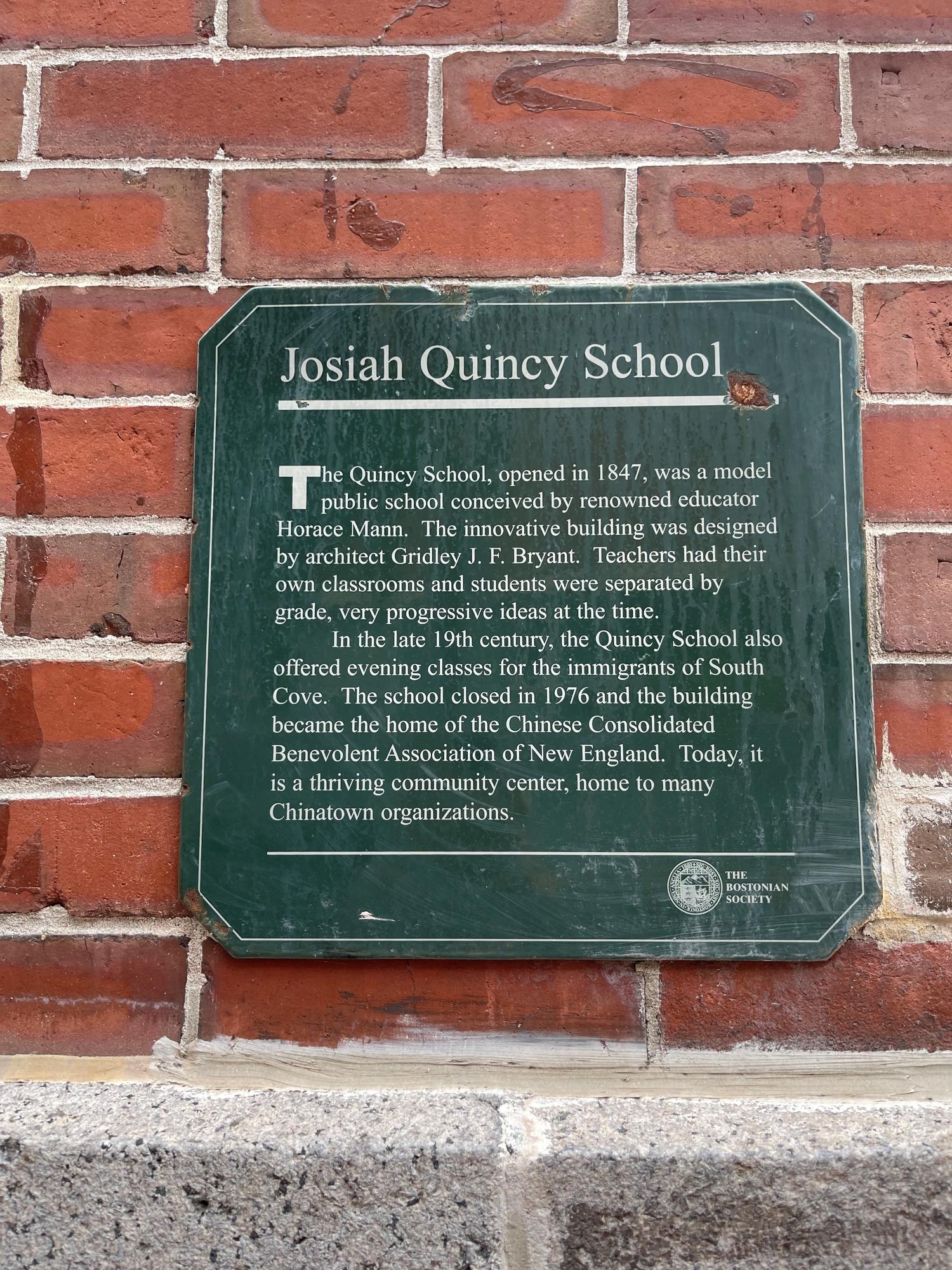
Plaque commemorating the former location of the Quincy Grammar School, now the Chinese Consolidated Benevolent Association. Photo by Meryum Kazmi
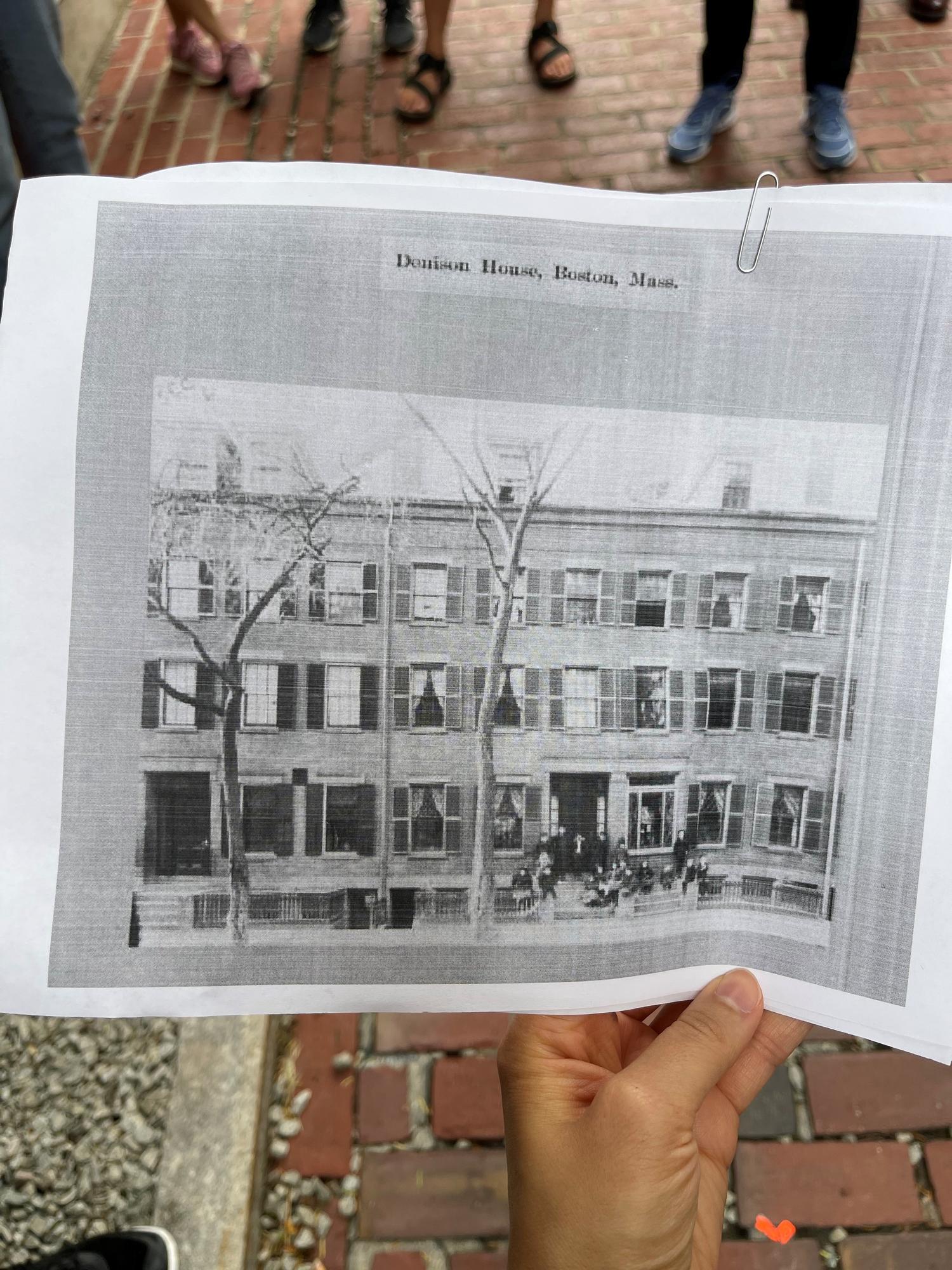
Dennison House, a settlement house that supported the local immigrant community
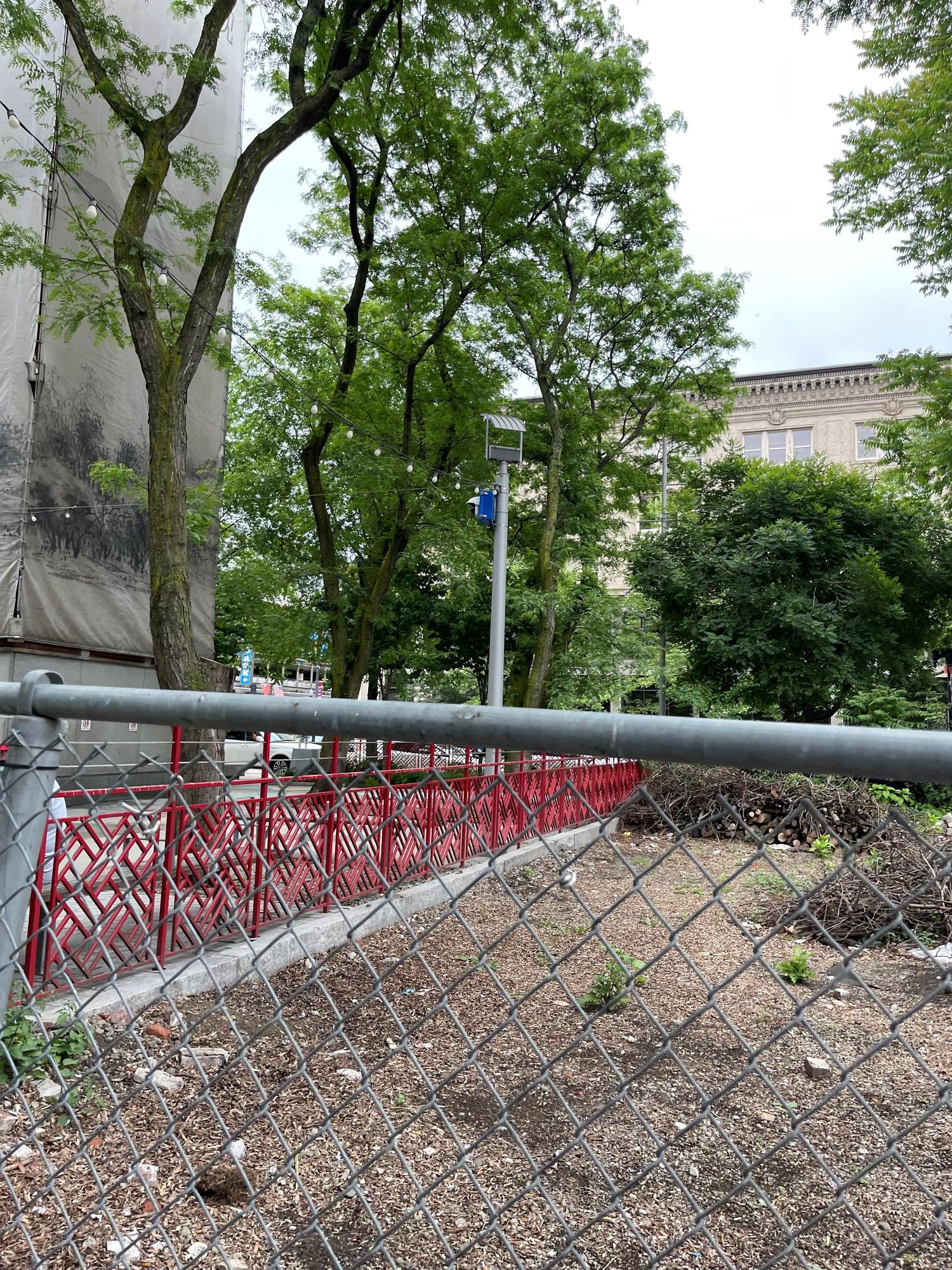
Empty lot at 6 Hudson Street, once the site of al-Lokanda al-Wataniyya "the only hotel that has perfected Oriental food… and Turkish coffee” and later the famous Chinese restaurant Ruby Foo’s Den. Photo by Meryum Kazmi
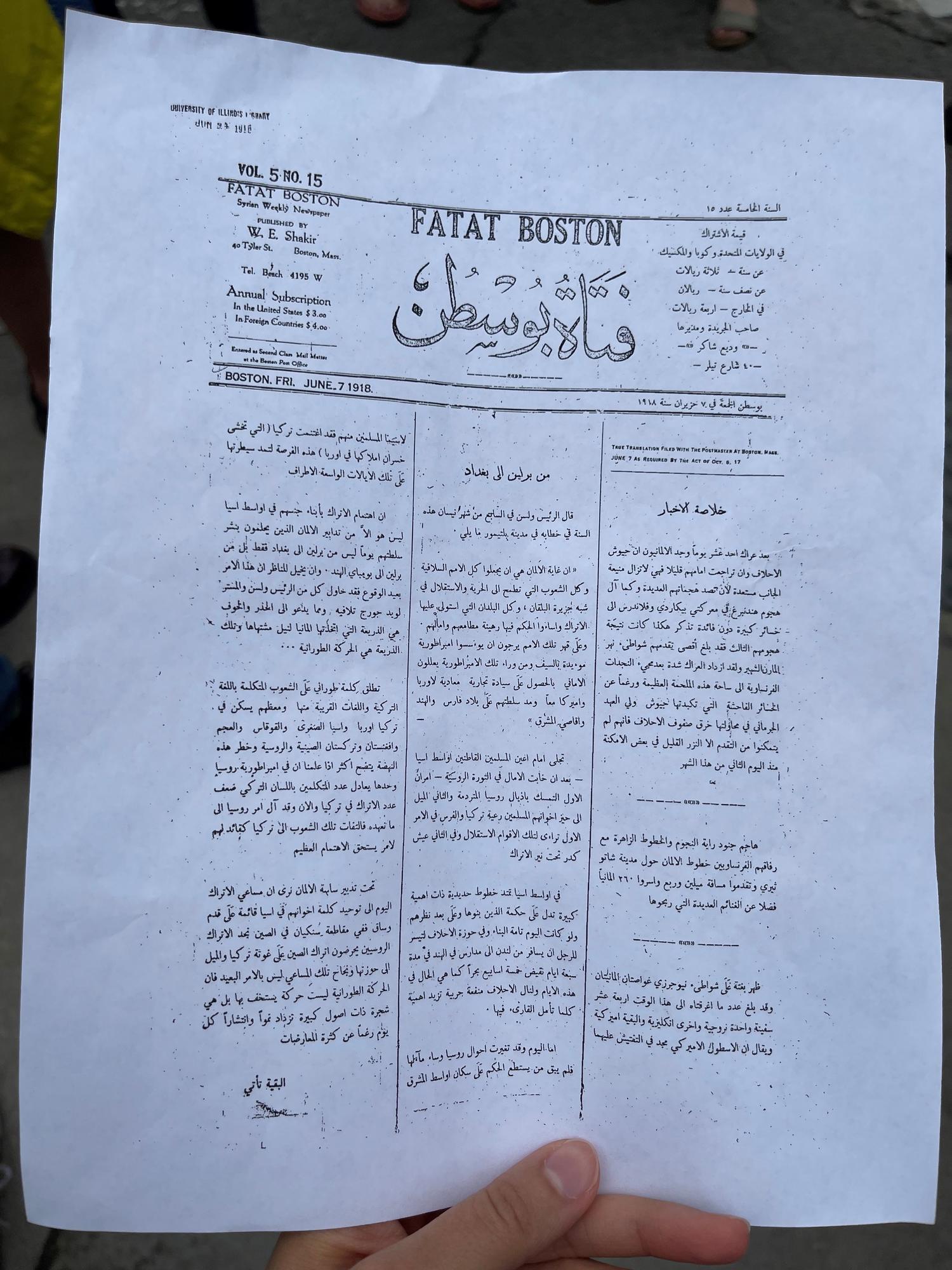
Fatat Boston, an Arabic-language newspaper published in Boston during the World War I years
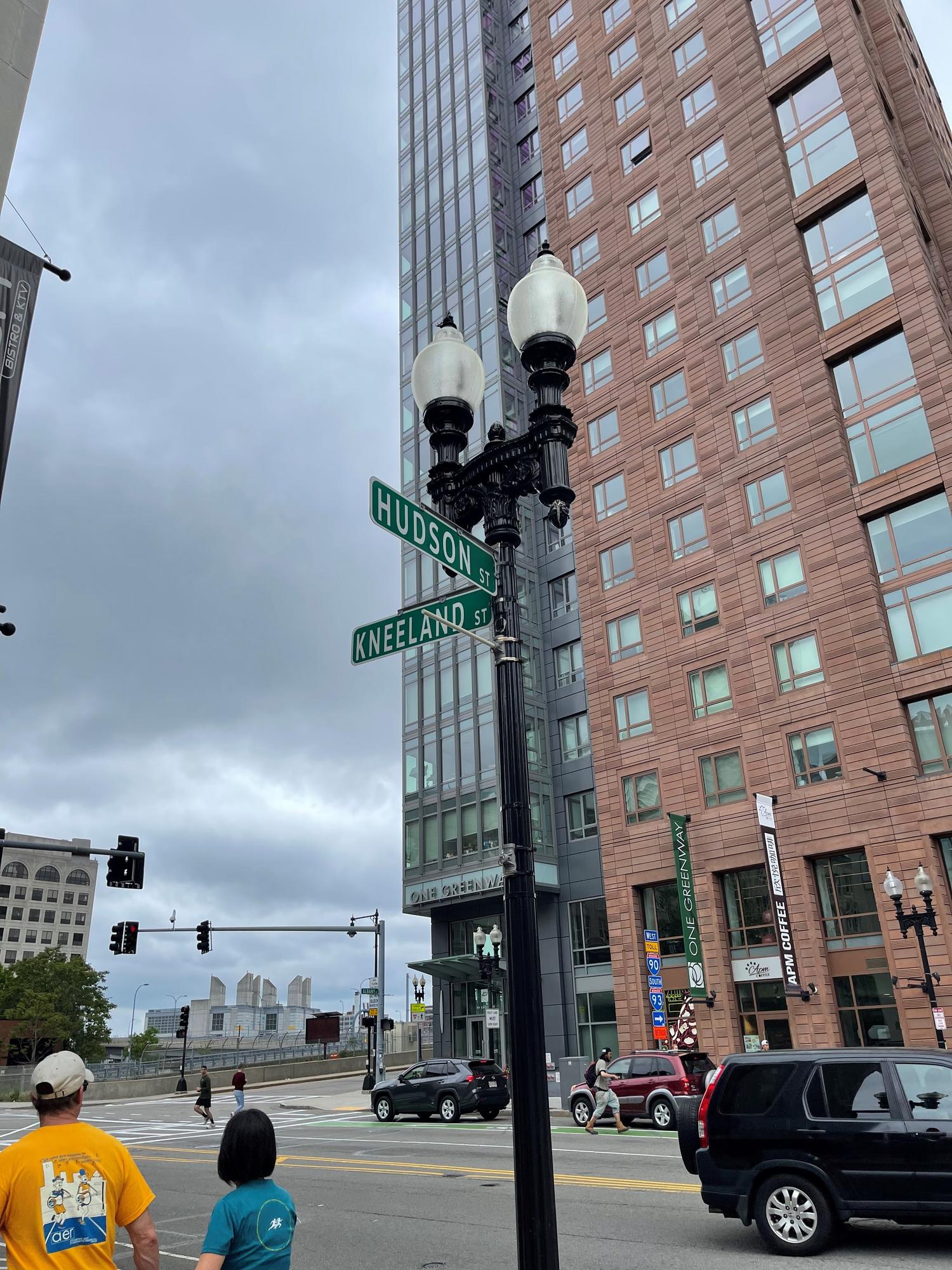
Hudson and Kneeland Streets. Photo by Meryum Kazmi
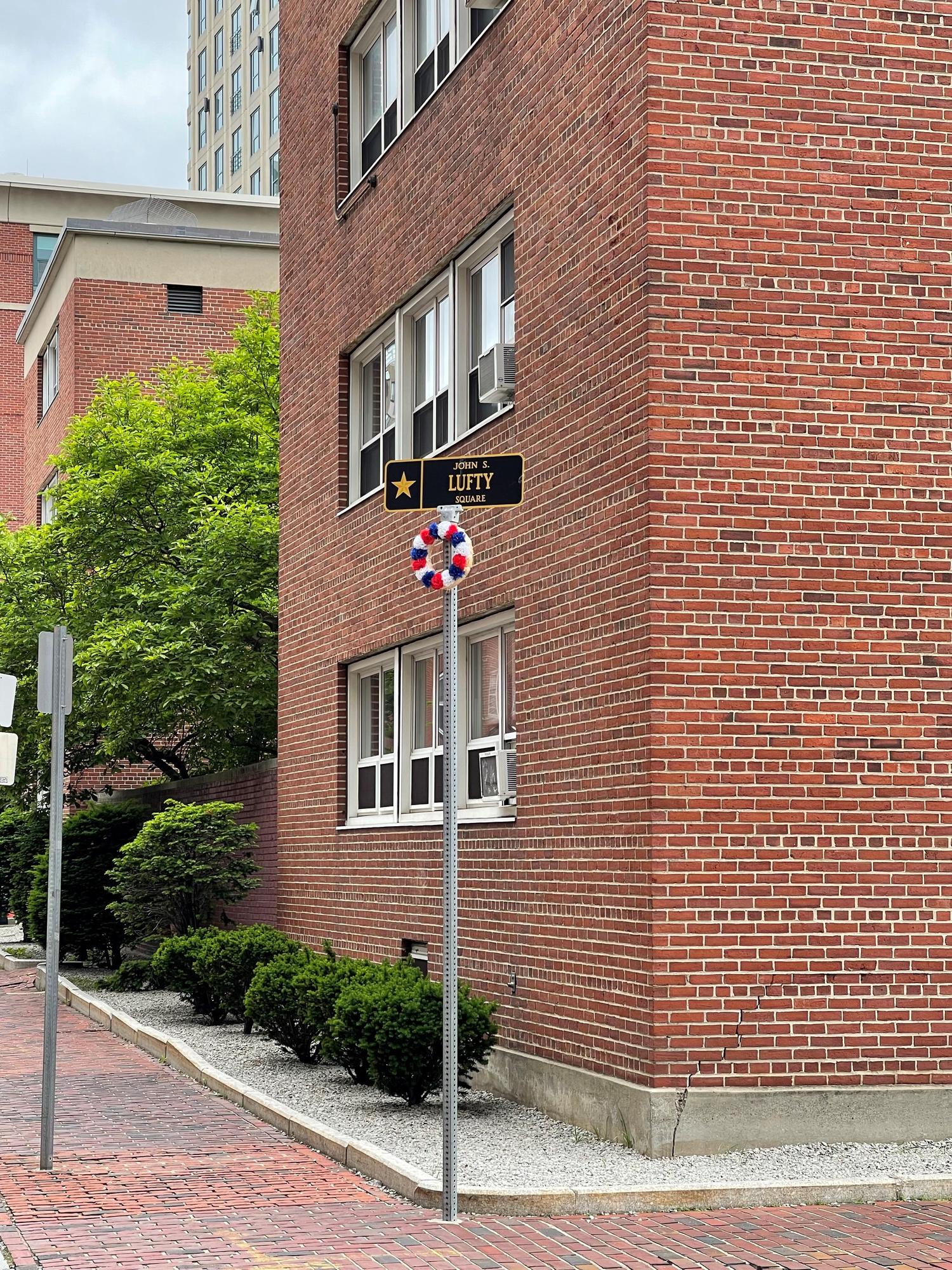
John S. Lufty Square, commemorating John Lufty (1897-1918). Photo by Meryum Kazmi
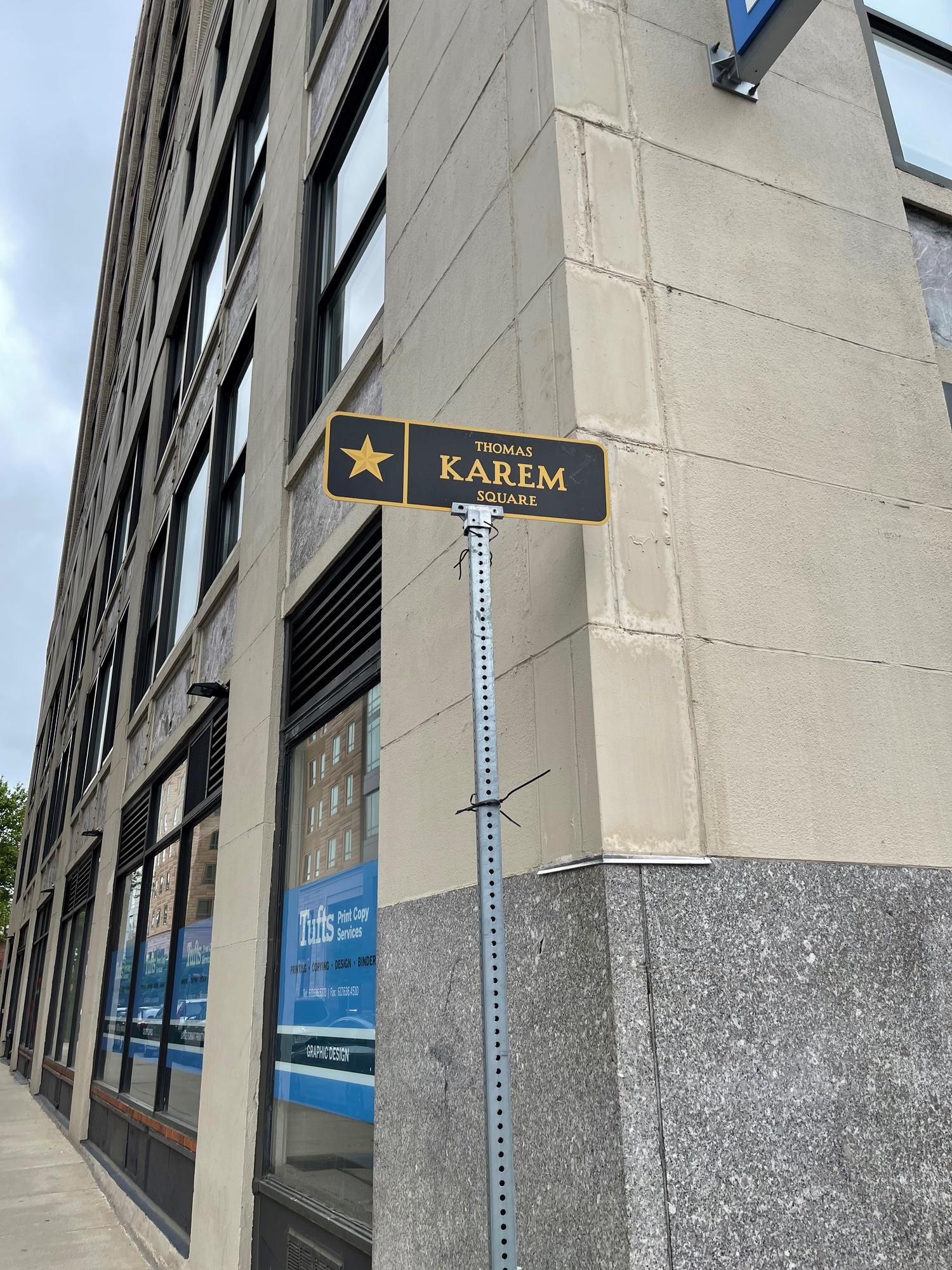
Thomas Karem Square, commemorating Thomas Karem (1898-1918). Photo by Meryum Kazmi
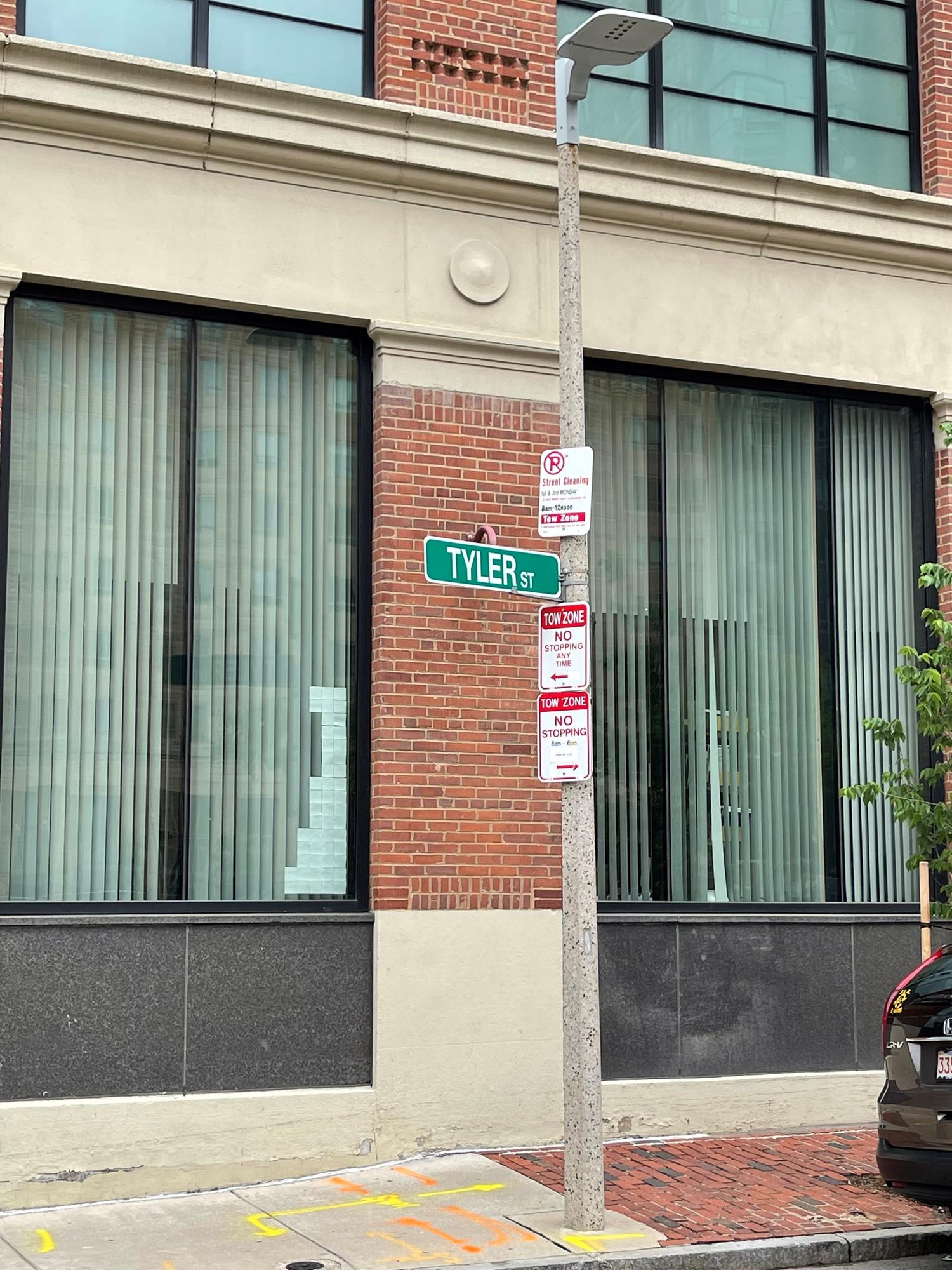
Tyler Street. Photo by Meryum Kazmi
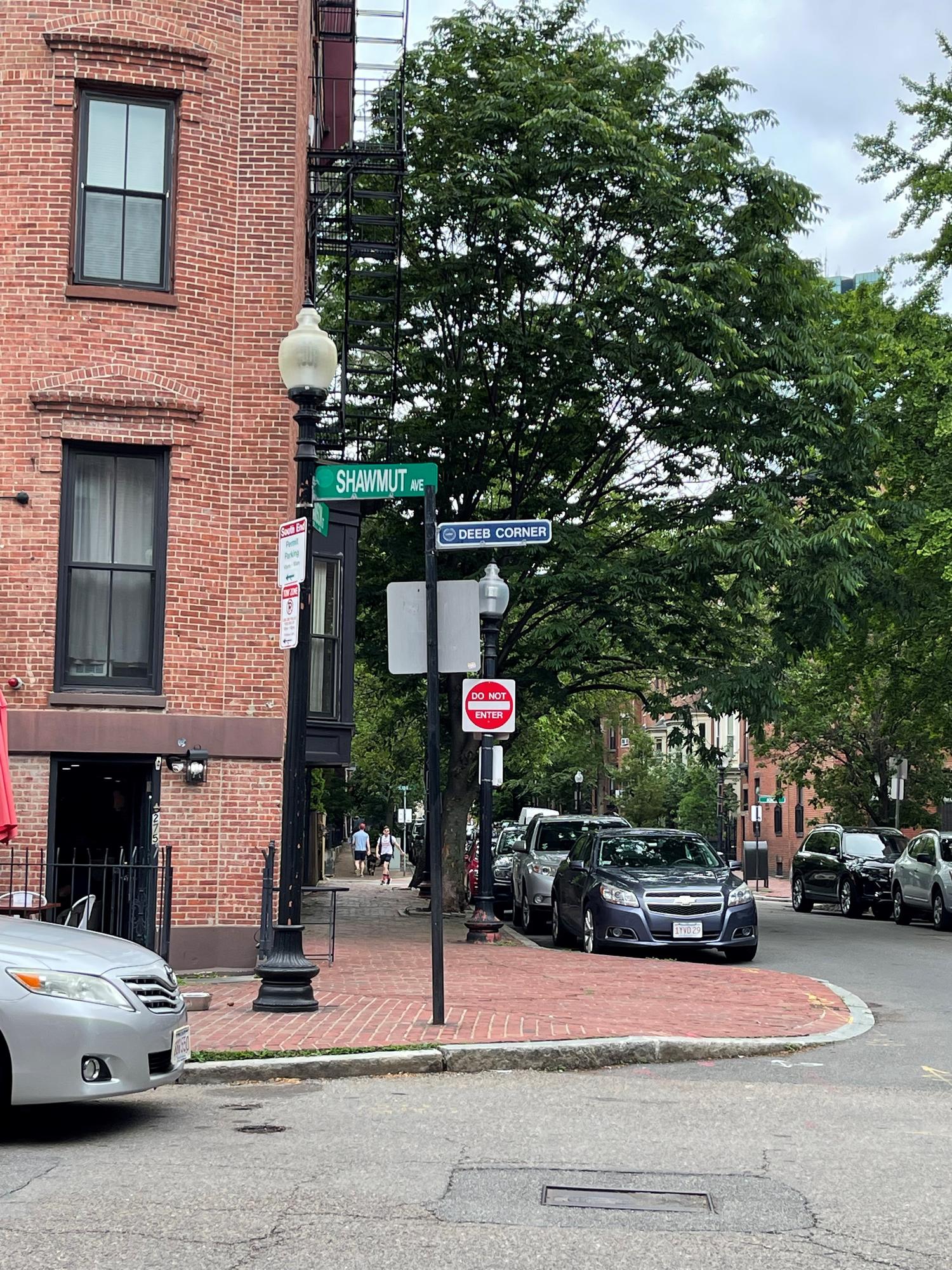
Deeb Corner, commemorating Ernest Deeb (1923-2020). Photo by Meryum Kazmi
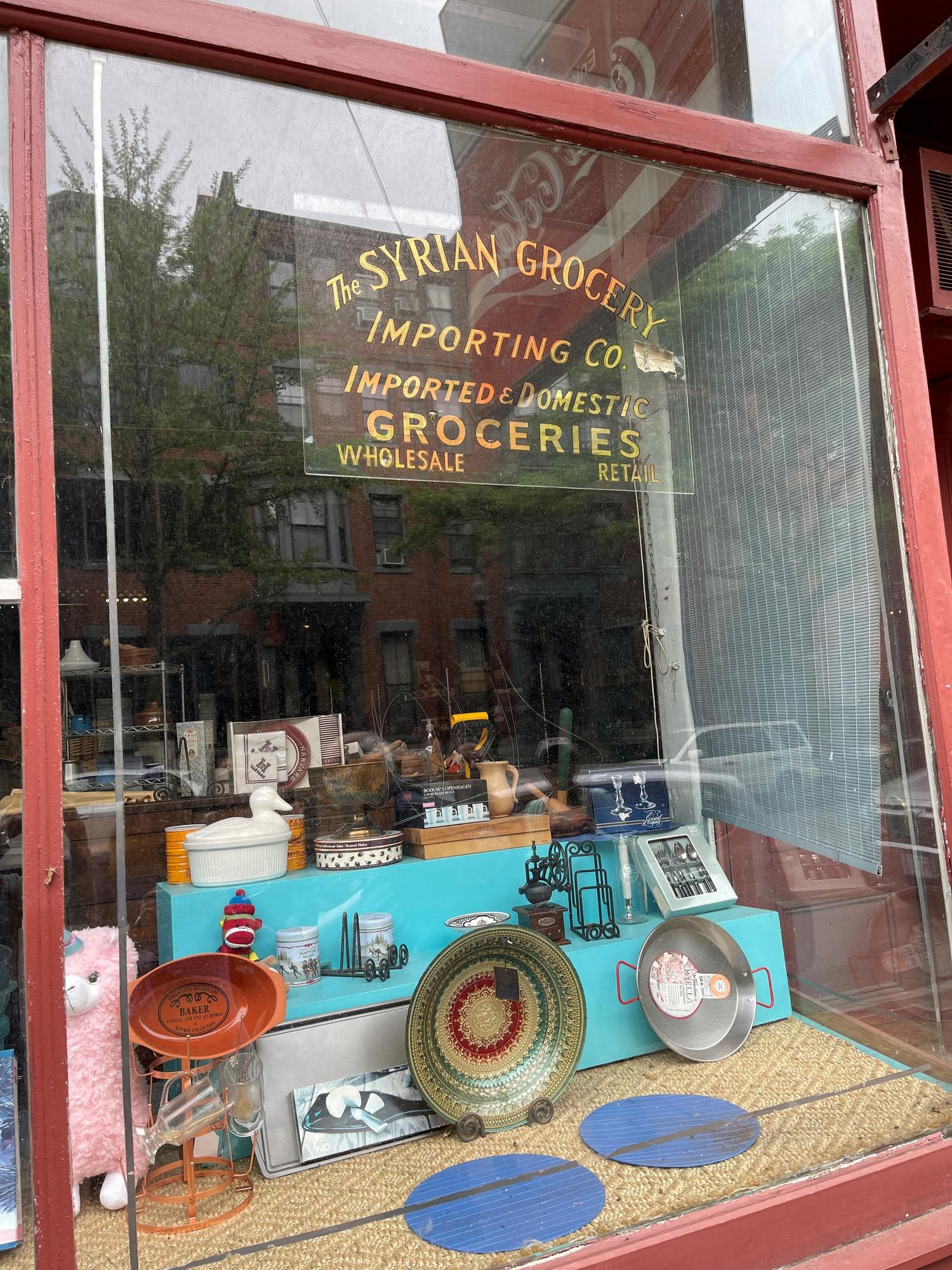
The Syrian Grocery Store, one of the few landmarks of Little Syria that remains on Shawmut Avenue. Photo by Meryum Kazmi
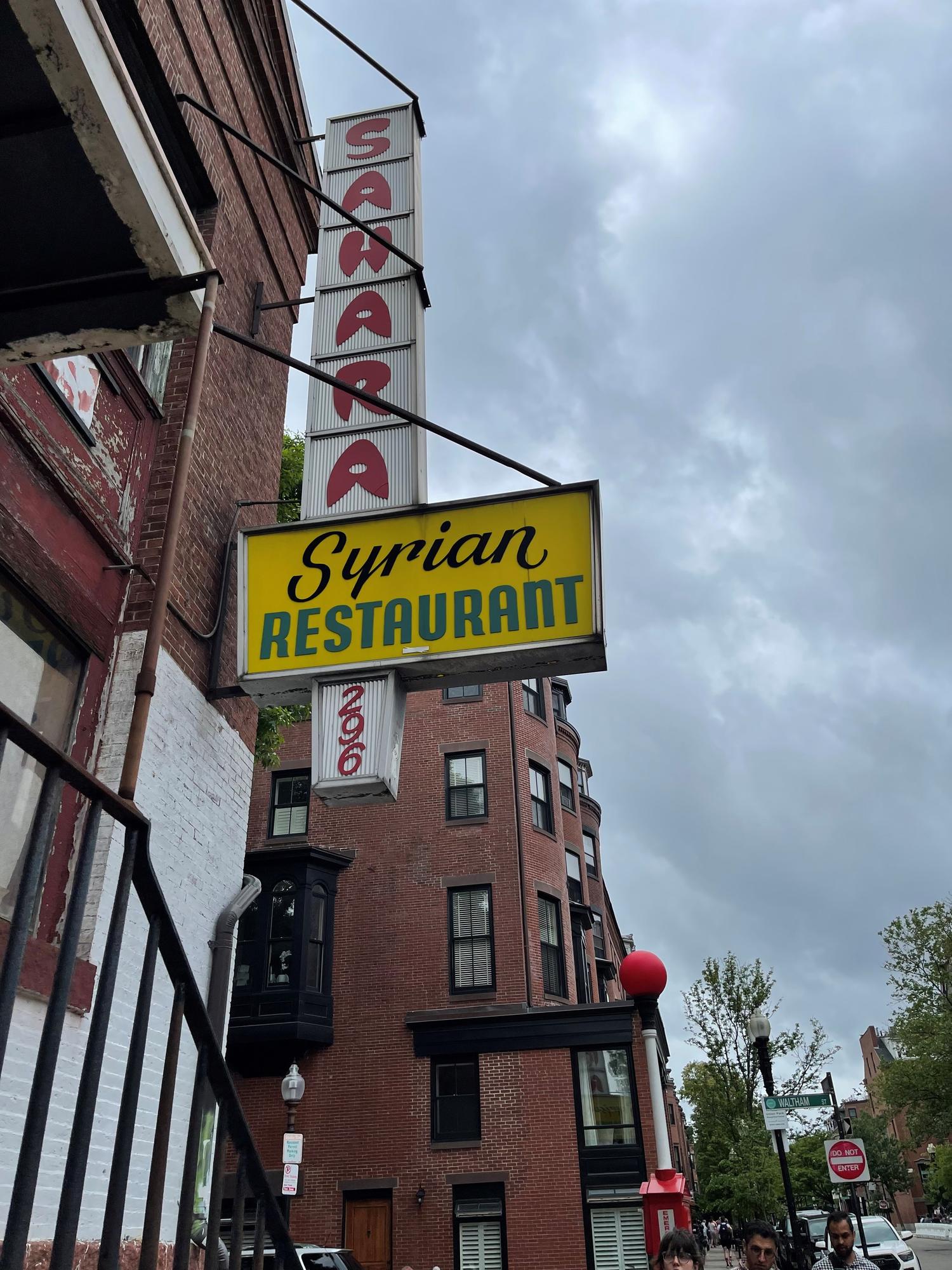
The Syrian Sahara Restaurant, although it has been closed for many years, still stands on Shawmut Avenue. Photo by Meryum Kazmi











Comments
Post a Comment
Due to an overwhelming amount of spam, we no longer read comments submitted to the blog.